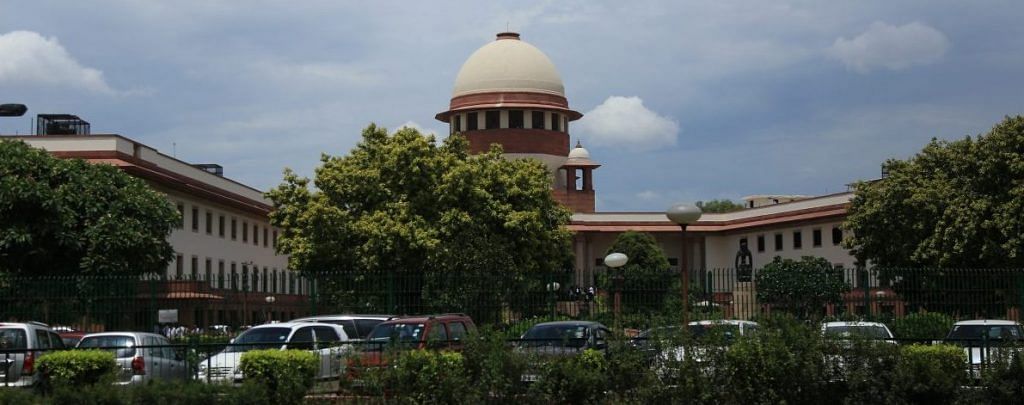The CASC plea says shutting down internet services — as governments have been doing so far — is not a viable option.
New Delhi: The Centre for Accountability and Systemic Change (CASC), a think tank, has petitioned the Supreme Court to appoint a grievance officer for WhatsApp messages.
“Such is WhatsApp’s simplicity and reach that it is used by everyone, be it a common person, or the judges of this Hon’ble Court. Every user has a number on WhatsApp but WhatsApp has no number through which its user can contact it for grievance redressal,” says the plea from the New Delhi-based organisation.
The plea comes just weeks after the apex court took strong note of the Centre’s move to regulate messages on WhatsApp, suggesting it would be akin to creating a “surveillance state”. The messaging app has more than 20 crore active users in India.
A need to regulate
Quoting statistics from the National Crime Records Bureau (NCRB) to indicate a sharp rise in the growth of rumour-based crimes, the plea says: “As per NCRB, in 2014-16, there have been 72,829 incidents of offences against public tranquility and a total of 3,64,526 persons were arrested for the same in 2016. Growth of such rumour-based crimes are directly proportional to growth of user base of messaging services like WhatsApp, which continue to remain unregulated.”
The plea relies on instances like the mass exodus of persons from the northeast from Bengaluru in 2012, the June 2014 rampage on the streets of Pune because of circulation of morphed images of Hindu gods on WhatsApp, and the recent spate of lynchings on the issues of cow smuggling and child lifting.
Also read: Modi govt must punish lynch mobs, not coerce WhatsApp into curbing users’ freedoms
“As per market reports, WhatsApp has per-user value of around USD 42/- which makes it a Rs 5.76 lakh crore company, i.e. greater than any Indian company. Yet, WhatsApp does not comply with provision mandating Grievance Officer and other laws of India (sic),” CASC said in its plea.
Expressing the need for a grievance officer, the plea says shutting down internet services — as governments have been doing so far — is not a viable option.
“In typical knee-jerk reactions, governments, be it at state or Centre, have taken the step of shutting down the internet for combating the dangerous aspects of social media. It is equivalent to killing the patient to contain the disease,” it said.
“Such steps have brought not only ridicule upon our law enforcers, but also exposed our inability to deal technologically and legally with social media companies. Since 2012, India has had 175 internet shutdowns, which have cost more than USD 3 billion damage to the economy.”
The plea raises the point that while on one hand, police authorities are partnering with WhatsApp, “it has been reported that WhatsApp is not co-operating with Indian intelligence agencies in their probe on terrorist activities”.
“None of the…authorities have Respondent No.6’s WhatsApp number to contact, in case they themselves face any problem.”
Also read: I’m charging BJP with spending billions to spread hate on Facebook, WhatsApp: Derek O’Brien.
What Centre and WhatsApp are doing
In Parliament Wednesday, minister of state for information technology S.S. Ahluwalia said the Centre has no plans to tap into the messages of private citizens, but it has asked WhatsApp to inform it of the various measures undertaken to deal with fake news.
“Government has also asked WhatsApp to convey various steps taken by them to deal with fake news and also to share learning material to educate the same,” Ahluwalia said during the monsoon session.
Following incidents of lynching, the Centre came down heavily on WhatsApp and warned that it would treat the messaging platform as an “abettor” of rumour-mongering and take legal action. In response to the Centre’s concerns over regulating fake news, WhatsApp recently introduced a new feature that indicated which messages were forwards. It has also undertaken initiatives that include education and advocacy efforts to curb fake news.
However, the CASC petition suggests that WhatsApp’s move to forward messages to only five people at a time puts India at an unequal footing. “That the above step puts Indians at an unequal level from rest of the world as rest of the users worldwide can forward a message to twenty people at a time. Moreover, the step is also an eyewash, as the limit on forwards is only the “media-based content”, i.e. videos, audio and GIF, and not on usual text messages,” the plea states.
